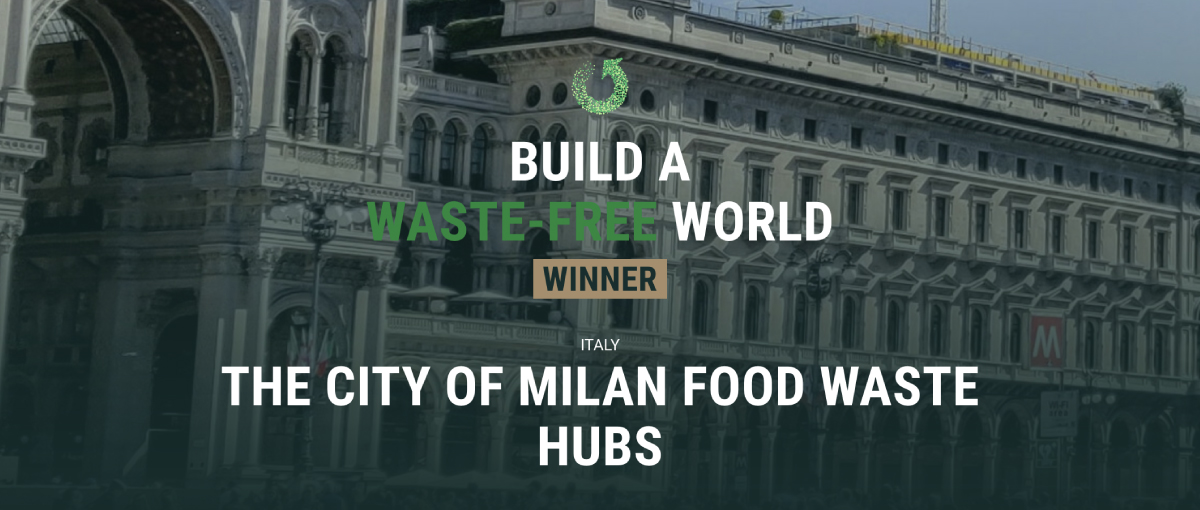Food food policy sostenibilità Sustainability
Neighbourhood Hubs against food waste win the Earthshot Prize
Dedicated to environmental protection actions, Milan’s anti-food waste project won £1 million and support from the Royal Foundation for the next few years.
Milan, 18 October 2021 – On the night of Sunday, 17 October 2021, Prince William announced that the City of Milan, with its Neighbourhood Hubs Food Policy project against food waste, is the winner of the first prestigious international Earthshot Prize for the best solutions to protect the environment.
A month ago it was announced that Milan was one of the 15 finalists in the “a world without waste” section, and yesterday, live on the BBC and Discovery Channel, Prince William unveiled the winners after an international panel of experts selected Milan from 750 candidate initiatives from around the world.
Along with Milan in the other four categories of the award were winners from the Republic of Costa Rica for the protection of forests, India for the reduction of smoke emissions into the air, Berlin for the development of hydrogen technologies for energy production, and the Bahamas for the protection of coral reefs.
In Milan, the BBC arranged a link to London from a terrace overlooking the Duomo, which was attended by Deputy Mayor Anna Scavuzzo, with representatives of all the partners who bring this project to life.
The £1 million prize will be used to further develop these hubs and open new ones, ensuring their long-term sustainability and replicating this excellent practice in the network of cities working with Milan on food policy, starting with the network of C40 cities and the Milan Urban Food Policy Pact.
Winning the Earthshot prize is the recognition of a great team effort that has involved the entire city: thanks to the City Council and many organisations from the third sector, universities, large-scale retail trade and philanthropy operating in the area, Milan now has 3 neighbourhood hubs at Isola (2019), Lambrate (2020) and Gallaratese (2021).
The project was born in 2017 as a result of an alliance between the City of Milan, Politecnico di Milano (with the research group of the Food Sustainability Lab, Department of Management, Economics and Industrial Engineering) Assolombarda, Fondazione Cariplo and the QuBì Programme.
The creation of the first Hub then brought in Banco Alimentare della Lombardia and saved over 10 tonnes of food per month, ensuring a stream of 260,000 equivalent meals in one year, reaching 3,800 people, thanks to the contribution of 20 supermarkets, 4 business canteens and 24 Third Sector organisations.
In particular, the Food Sustainability Observatory conducted a network feasibility study and monitored the hubs’ operation and the impact generated by the project, thus making it possible to build an extensible logistic model replicable in other areas of the city.
Indeed, this was followed by the launch of the Hub in Lambrate, immediately after the first lockdown in spring 2020, also managed by Banco Alimentare della Lombardia in a space made available by AVIS Milano and with the support of BCC Milano. The third Hub, at Gallaratese, is managed by Terre des Hommes with the support of the Fondazione Milan.
Another one, currently in the planning stage, will be the neighbourhood Hub in Corvetto, managed by the Banco Alimentare della Lombardia and with the support of the Fondazione SNAM; while the City of Milan has recently started the co-design process for the Hub in the city centre with Associazione IBVA and the support of BCC Milano.
The team of the Department of Management, Economics and Industrial Engineering:
Alessandro Perego, Marco Melacini, Giulia Bartezzaghi, Annalaura Silvestro and Andrea Rizzuni from the Food Sustainability research group.
Partners involved:
The project involves major retailers including Lidl Italia, Esselunga, Carrefour, NaturaSi, Erbert, Coop Lombardia, Il Gigante, Bennet, Penny Market with the support of Number1 Logistics Group who provided the vans for the Isola and Lambrate hubs. Also involved were the canteens of Pirelli, Siemens, Deutsche Bank and Maire Tecnimont, coordinated by Gruppo Pellegrini for the Isola Hub.
With Fondazione Cariplo and SogeMi, the City of Milan has also launched the Foody zero waste initiative to replicate the hub model at Ortomercato and recover fresh food together with Banco Alimentare della Lombardia, Recup, Croce rossa sud milanese, Università degli studi di Milano and many other supporting partners.






